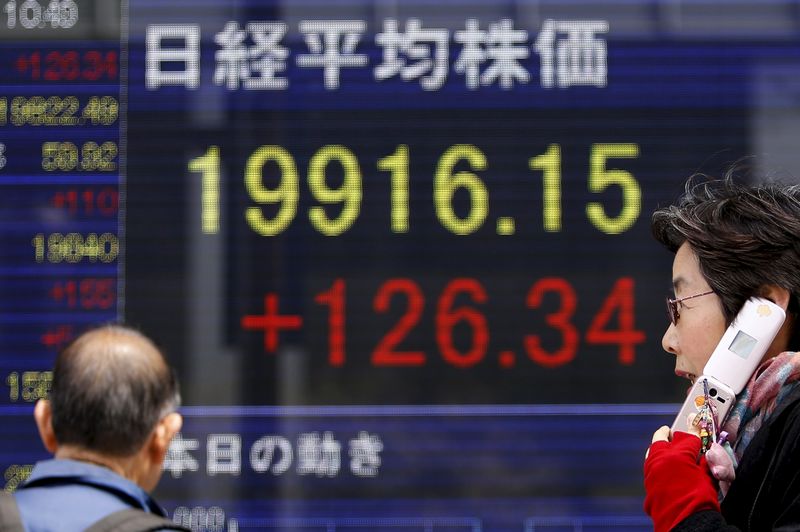By Ambar Warrick
Investing.com -- Most Asian stock markets rose slightly on Tuesday tracking a strong overnight lead-in from Wall Street, although gains were limited as traders awaited key U.S. inflation data and the conclusion of a Federal Reserve meeting for more cues on monetary policy.
Uncertainty over rising COVID-19 cases in China also weighed on regional sentiment, as the country reversed more movement and quarantine measures.
Wall Street bourses ended stronger overnight on hopes that the Federal Reserve and other major central banks will tone down their hawkish stances to help prevent a potential recession.
This notion somewhat spilled over into Asia, with Japan’s Nikkei 225 index and Hong Kong’s Hang Seng index rising 0.4% and 0.6%, respectively.
Focus this week is also on trade data from Japan to gauge whether a recent recovery in the yen and improving commodity prices helped ease the country’s massive import bill.
India’s Nifty 50 and BSE Sensex 30 indexes added 0.2% each, after data on Monday showed that consumer inflation eased further in November, likely heralding smaller interest rate hikes by the Reserve Bank.
But this was offset by substantially weaker-than-expected industrial production data for the month.
Broader Asian markets logged small gains as focus turned to key U.S. consumer inflation data due later in the day. While the reading is expected to have eased in November from the prior month, markets are wary of a potential upside, especially after stronger-than-expected producer inflation data released on Friday.
Stronger-than-expected inflation could invite a more hawkish rhetoric from the Fed, which is set to hike rates by 50 basis points on Wednesday. But the central bank has warned that stubborn inflation will see U.S. borrowing costs peak at much higher-than-expected levels.
Focus this week is also on interest rate hikes by the European Central Bank and the Bank of England, as well as key economic readings from the two countries.
China’s bluechip Shanghai Shenzhen CSI 300 index and the Shanghai Composite index fell about 0.2% each on Tuesday, with local markets set for more near-term volatility as markets weigh rising COVID-19 cases against the prospect of further relaxations in anti-COVID measures.
Fixed asset investment, industrial production and retail sales data prints from China are also due this week, and are expected to shed more light on the economic impact of the country’s strict zero-COVID policy.
